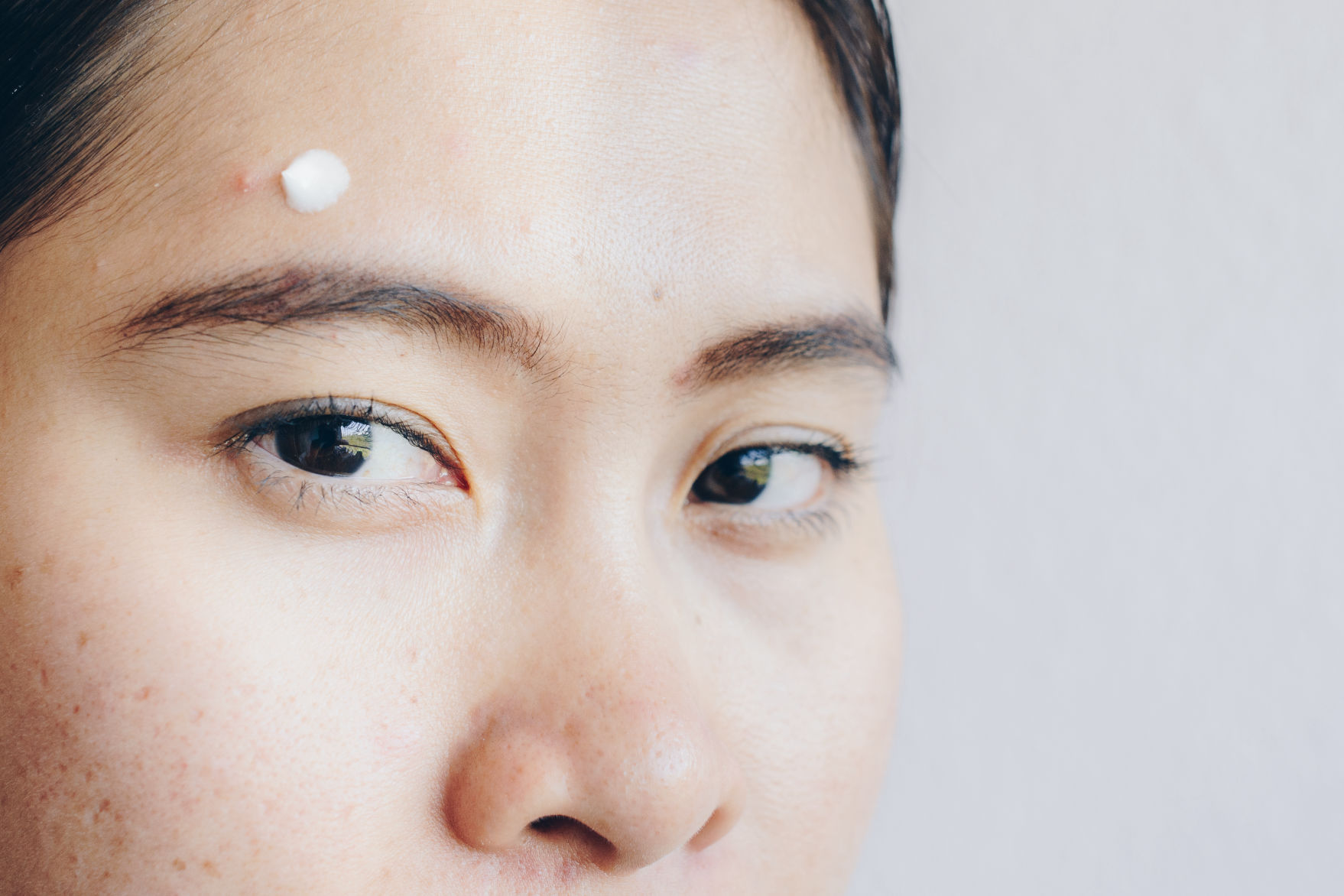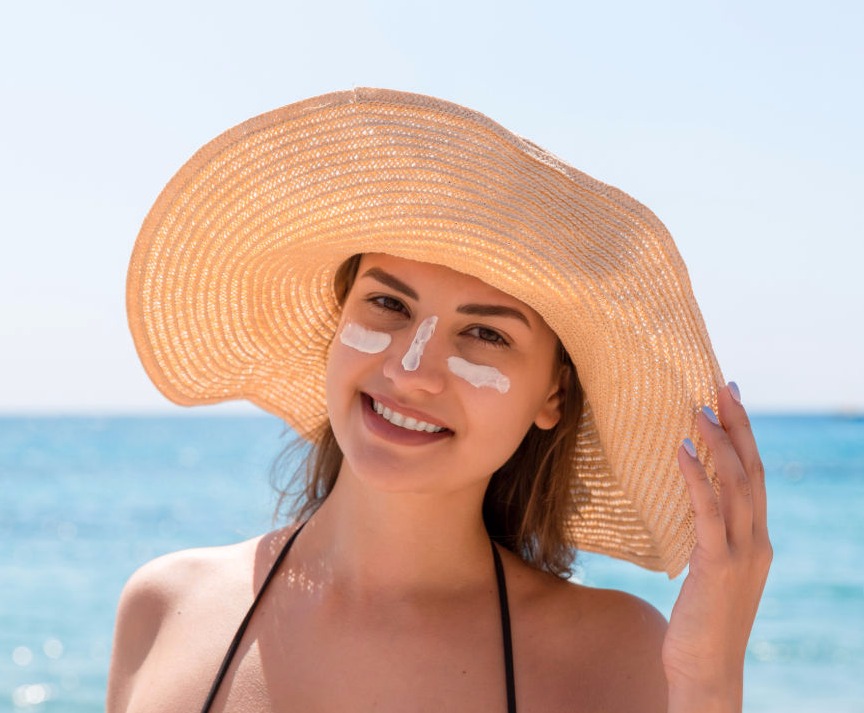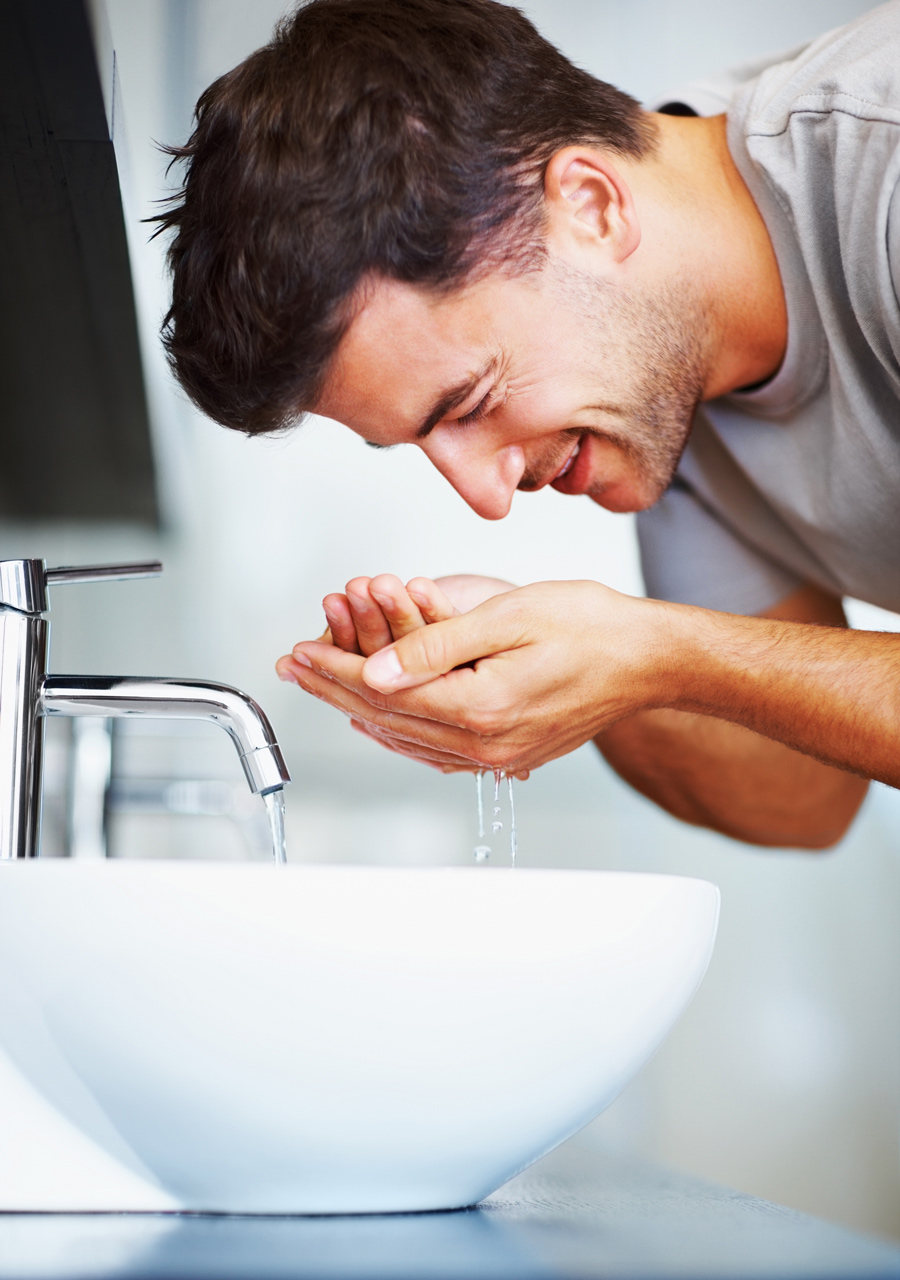01
Cleansing
Avoid over-washing
Over-washing your face can strip away the oil your skin needs to stay balanced, making acne worse. Twice a day, morning and evening, is enough. Choose a soap free cleanser that won't dry your skin out.

"Acne arises primarily from the sebaceous or oil producing glands. At this stage, they are not visible to the naked eye and are called microcomedones – this is the invisible stage of acne. When they do become visible, they become comedones which is what we are used to seeing as ‘blackheads’ and ‘whiteheads’."
Dr Philip Tong

According to acne expert, dermatologist Dr Phil Tong, a simple skincare routine is best for acne-prone skin. A gentle soap-free cleanser that doesn't dry the skin followed by a light moisturiser is his recommendation as skin dryness can be a cause of ongoing acne breakouts.
"Acne arises primarily from the sebaceous or oil producing glands. At this stage, they are not visible to the naked eye and are called microcomedones – this is the invisible stage of acne. When they do become visible, they become comedones which is what we are used to seeing as ‘blackheads’ and ‘whiteheads’."

Watch what Dr Tong has to say

Dr Philip Tong is a dermatologist in a private practice in Sydney’s eastern suburbs as well as a visiting specialist at St Vincent’s Hospital and Deputy Director of Research at The Skin Hospital. He is also a strong consumer advocate for can patients through his work with All About Acne.
He believes a simple skincare routine is best for acne-prone skin. A gentle soap-free cleanser that doesn't dry the skin followed by a light moisturiser is his recommendation as skin dryness can be a cause of ongoing acne breakouts.
"Acne arises primarily from the sebaceous or oil producing glands. At this stage, they are not visible to the naked eye and are called microcomedones – this is the invisible stage of acne. When they do become visible, they become comedones which is what we are used to seeing as ‘blackheads’ and ‘whiteheads’."

Watch what Dr Tong has to say
Over-washing your face can strip away the oil your skin needs to stay balanced, making acne worse. Twice a day, morning and evening, is enough. Choose a soap free cleanser that won't dry your skin out.
Similarly to cleansing too often, over-exfoliating can damage the skin barrier, leading to further breakouts. It can be tempting to exfoliate regularly when dealing with acne but once a week is the recommended amount.
When oily skin becomes dry, it is much more likely to break out. Moisturising is an essential step for all skin types, and that includes oily, acne-prone skin. To avoid further breakouts, opt for a non-greasy and non-comedogenic formula.
Makeup helps conceal blemishes, but certain ingredients should be avoided. Go for oil-free, mineral and non-comedogenic products that won't clog pores and make acne worse.

Having an acne specific skincare routine and sticking to it is extremely important when trying to clear up acne breakouts. The last two steps of your routine should always be moisturiser and sunscreen, but there are a lot of misconceptions when it comes to moisturisers and SPF for oily, acne-prone skin.
When choosing a moisturiser and a sunscreen for acne-prone skin, be mindful that the formulas are non-comedogenic and won't contribute to further breakouts.
Words from
Dr Philip Tong
Words from
Dr Philip Tong
SPF

Tips for acne-prone skin
Routine
Have an acne specific routine
And make sure you stick to it! A daily commitment to your acne regime will help achieve blemish-free skin.
Simplicity
Keep it simple
Limit your routine to as few products as possible as to not overwhelm skin with ingredients that can cause further breakouts.
Moisturising
The right formula
Excessive dryness can worsen acne, so it's important to moisturise. Opt for light, non-comedogenic formulas specifically formulated for acne-prone skin.

On the blog
On the blog